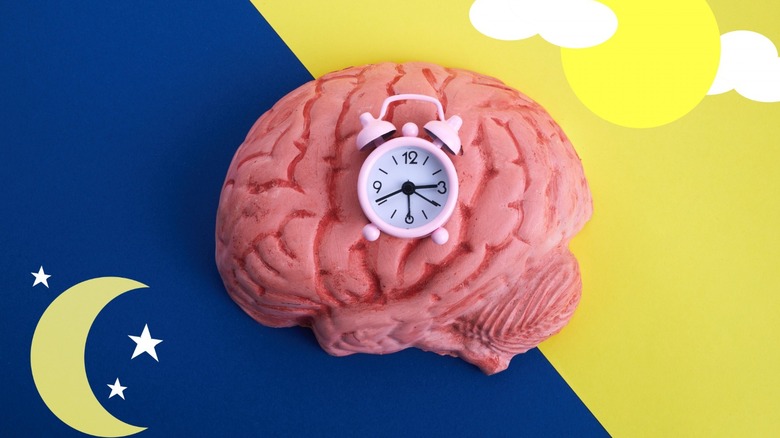Can Too Much Sleep Actually Be Bad For Your Brain Health?
Sleep is a critical aspect of physical and mental health (per Cleveland Clinic). Not only does sleep allow your body to rest and recharge, it can also help you manage stress. Overall, sleep plays a major role in growth, development, survival, and well-being. Perhaps most important of all, sleep helps keep the nervous system functioning properly. For example, sleep supports the brain's ability to adapt and process what we learn, also known as brain plasticity (per Johns Hopkins Medicine). According to Harvard Health Publishing, quality sleep is part of maintaining a healthy brain. During sleep, the brain makes connections that support learning and memory. Further, getting enough sleep can boost your attention and creativity. So you might wonder: how much sleep do I need?
According to WebMD, the average adult needs between seven to nine hours of sleep each night. However, individual needs differ, as some people need as little as six hours of sleep, while others need as much as 10. Sleep Foundation says that a lack of sleep can impair brain health. But could too much sleep also negatively affect the brain? The answer may surprise you.
Too much sleep and brain health
According to WedMD, too much sleep is associated with a number of health issues like diabetes, depression, and heart disease. Notably, John Hopkins Medicine says that the direction of the cause-and-effect relationship is uncertain. It could be that any of these issues could contribute to a lack of sleep, rather than the lack of sleep causing an illness. Regardless, recent research has now identified a link between aspects of sleep and dementia.
A 2021 study published in the journal Frontiers in Neurology found that going to bed earlier may increase the risk of developing dementia for those who do not yet have it. The researchers concluded that "those with a bedtime of before 9 p.m. were two times more likely to develop dementia compared to those going to bed between 9 and 11 p.m." A 2022 study published in the Journal of the American Geriatrics Society found similar evidence — going to bed before 9 p.m. doubled the risk of developing dementia. However, the researchers also found that when compared to those who slept for seven to eight hours, people who slept for more than eight hours had a 69% increased risk of developing dementia (per EurekAlert!). Notably, both of these studies sampled older adults from China who entered the study without a dementia diagnosis.

